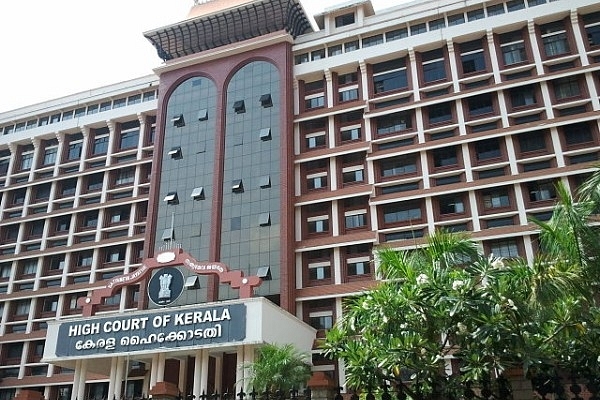Politics
Women’s Entry Into Mosques: Kerala High Court Approach Not In Conformity With Apex Court
- The grounds on which the Kerala High Court has dismissed a petition concerning Muslim women’s entry into mosques goes against precedent.

Kerala High Court (Rojypala of the Malayalam Wikipedia project)
The Kerala High Court has dismissed the writ petition of Swamy Detrathreya Sai Swarup Nath, state president of the Akhil Bharat Hindu Mahasabha, praying for allowing Muslim women entry into mosques. The petitioner said the Supreme Court had directed entry of menstruating women into the Sabarimala temple, and so, on the same footing, Muslim women should be given entry into mosques, too.
The reasons given by the Kerala High Court for dismissing the petition are as follows:
The High Court observes “Averments in the writ petition do not suggest that the petitioner is a person who should ordinarily be concerned with the rituals and practices of the Islamic religion”.
In other words, the petitioner lacks locus standi.
The High Court also accused the petitioner of being motivated with a desire for cheap publicity.
But if the Supreme Court did not dismiss the Sabarimala petition filed by the Indian Young Lawyers Association, who also did not have any personal grievance, on these grounds, should the Kerala High Court have done so?
The High Court says that the petitioner “has not satisfactorily established his credentials as a person who has a history of espousing such causes before the superior courts of our country”.
This is a novel invention of the High Court. Now, in order to make a public interest litigation petition maintainable, the petitioner must “establish his credentials as a person who has a history of espousing such causes before the superior courts”.
In other words, he must be a ‘muqadmebaz’.
The High Court says the petitioner does not represent Muslim women. But neither did the Indian Young Lawyers Association, which had moved the Sabarimala temple entry petition in the Supreme Court. The rule that the petitioner must be personally aggrieved to make his petition maintainable was discarded by the Supreme Court long ago in S P Gupta vs Union of India in 1982, followed by a series of decisions, e.g., Bandhua Mukti Morcha vs Union of India, People's Union of Democratic Rights vs Union of India, and the rule of locus standi has been changed since then. How could the High Court ignore all this?
The High Court also said that “the writ petition does not disclose material that would suggest that there is an established practice whereby Muslim women are being denied entry into mosques”.
But for that, the Court could have easily appointed an advocate commissioner to inspect mosques in the state and report on their practice.
It may be mentioned that, in theory, Muslim women are not denied entry into mosques. But in India, in practice, hardly 1 per cent or 2 per cent of Indian mosques permit entry to Muslim women, who consequently have to pray at home. And it is practice that matters, not theory.
The reason given for this is lack of space. But if that is so, why not permit entry to women and let the Muslim men pray outside the mosque or at home? Why discriminate against women? Or devise a system of 50-50 entry to each sex.
I am afraid the Kerala High Court judgement does not seem to be in conformity with that of the Supreme Court.
Introducing ElectionsHQ + 50 Ground Reports Project
The 2024 elections might seem easy to guess, but there are some important questions that shouldn't be missed.
Do freebies still sway voters? Do people prioritise infrastructure when voting? How will Punjab vote?
The answers to these questions provide great insights into where we, as a country, are headed in the years to come.
Swarajya is starting a project with an aim to do 50 solid ground stories and a smart commentary service on WhatsApp, a one-of-a-kind. We'd love your support during this election season.
Click below to contribute.
Latest